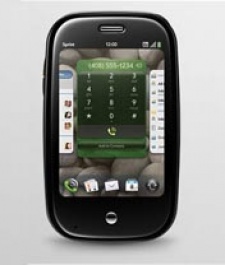With Palm having come perilously close to the edge in the last few months, its buyout by PC manufacturer HP has, naturally, been viewed as a positive move by many.
The general take has been that the takeover will hand Palm the money and momentum it needs to increase its smartphone market share. The question of just what this does for HP is provoking far more debate however.
Reality check
As such, the think tank specialist Strand Consult has suggested analysts are viewing the buyout solely from a US perspective. In the firm's view, HP's move for Palm looks a lot more sour when viewed globally.
"Palm is only a brand name in the USA," the company says, in 20-point evaluation of the deal.
"Outside the USA, Palm is totally unknown as a phone manufacturer."
It's fair to say O2's deal with Palm in the UK certainly hasn't gained the same attention its previous link-up with iPhone managed.
But Strand also claims its O2 tie-up is something of a rarity, pointing out that Palm has "limited relationships with operators around the world".
Sticky web
WebOS, too, isn't without its pitfalls, despite being Palm's main selling point.
"The important issue is distribution of your OS and how many devices you can get your OS running on," the firm states, suggesting the fact webOS is currently limited to Palm handsets will harm its potential profitability.
"There are a great many OSs in the mobile world in fact there are far more smartphone OSes than most people realise.
"There is no doubt that Palm's webOS is a good OS, but why should developers develop services for the US market alone, and where are the tools and access to different API's to make it attractive to develop for the OS."
Working with Windows?
Sweeping up developer enthusiasm was something Palm had started doing before news of the HP buyout broke, but Strand Consult believes it's too little too late.
If HP is to make mobile waves, it states, then it will have to turn to other OS most likely Microsoft's Windows Phone 7.
"WebOS is and will remain a niche OS, and what HP is buying is a hardware brand that is known in the US," the company concludes.
"So, maybe HP will use the hardware brand and then choose top go the Android and/or Microsoft way. If that is their plan, then $1.2 billion is a high price. From where I'm sitting, it looks as if HP has looked at the value that iPhone has created for Apple's shareholders and said, 'hey, we need a product like that too'.
"It appears as if HP purchased a donkey, and is hoping that they can pass it off as a racehorse to their shareholders."
[source: Strand Consult]
Analyst reckons HP has spent $1.2 billion on a donkey
Palm purchase raises more questions than answers






















